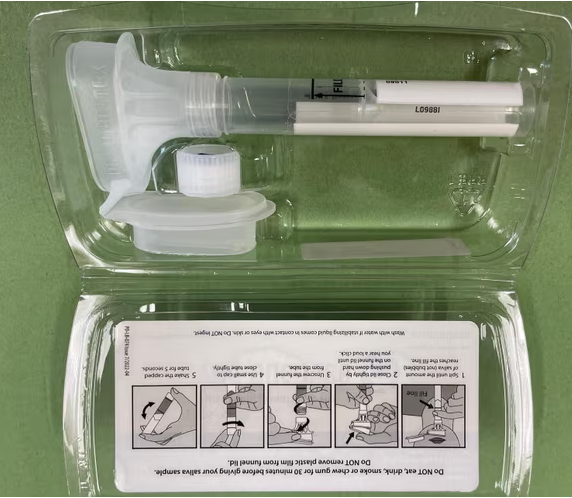A recent study has suggested that an at-home saliva test can predict prostate cancer effectively than the usual PSA test. However, experts cautioned that it’s too early to determine its impact on saving lives.
A PSA (prostate-specific antigen) test is a blood test that helps diagnose and manage prostate cancer.
The study, published in the New England Journal of Medicine, analyses 130 genetic variants in men that are known to be associated with an increased risk of prostate cancer, which can then determine whether or not a person is at high risk of the disease.
The test also targeted the men for prostate biopsies and MRI scans, which discovered some aggressive cancers that would otherwise have gone unnoticed.
In the study, the researchers tested men of white European ancestry aged 55-69 and calculated their risk.
Men in the top 10% of scores were invited for further investigations. After the MRI and prostate biopsy, 40% of these men were diagnosed with prostate cancer. The saliva test also identified a higher proportion of aggressive cancers.

Out of 745 men with a high score, 468 were prepared to have the extra tests, of which 187 were found to have prostate cancer. 55.1% were aggressive cancers, compared to the 35.5% that would have been identified by a PSA test.
Ros Eeles, the lead researcher, said combining the new spit test with existing ones can help doctors focus on men likely to develop serious cancer and avoid putting those at low risk through needless treatment.
“With this test, it could be possible to turn the tide on prostate cancer. We have shown that a relatively simple, inexpensive spit test to identify men of European heritage at higher risk due to their genetic makeup is an effective tool to catch prostate cancer early,” Eeles said.
“We can identify men at risk of aggressive cancers who need further tests and spare the men who are at lower risk from unnecessary treatments.”
Dheeresh Turnbull, a 71-year-old from Brighton who took part in the trial, said traditional methods to assess prostate cancer deemed he had a low risk of the disease. He added that the new spit test helped him to discover he had a life-threatening tumour in his prostate.
“I was completely shocked. I would never have been diagnosed at this stage if I hadn’t joined the trial,” he said.
His brother Joel Turnbull also took part in the study and discovered he had an aggressive prostate tumour.
“It’s incredible to think that because of this study, two lives have now been saved in my family,” Dheeresh said.
However, Dusko Ilic, a researcher and professor from King’s College London, emphasised the need for more studies to confirm the test’s effectiveness in improving survival rates and quality of life.
Ilic said there was still “no direct evidence” of it improving survival or quality of life.
The study primarily focused on men of white European ancestry. More research is needed to confirm its effectiveness in diverse populations, particularly black men who have a higher risk of prostate cancer.
Copyright 2025 TheCable. All rights reserved. This material, and other digital content on this website, may not be reproduced, published, broadcast, rewritten or redistributed in whole or in part without prior express written permission from TheCable.
Follow us on twitter @Thecablestyle

